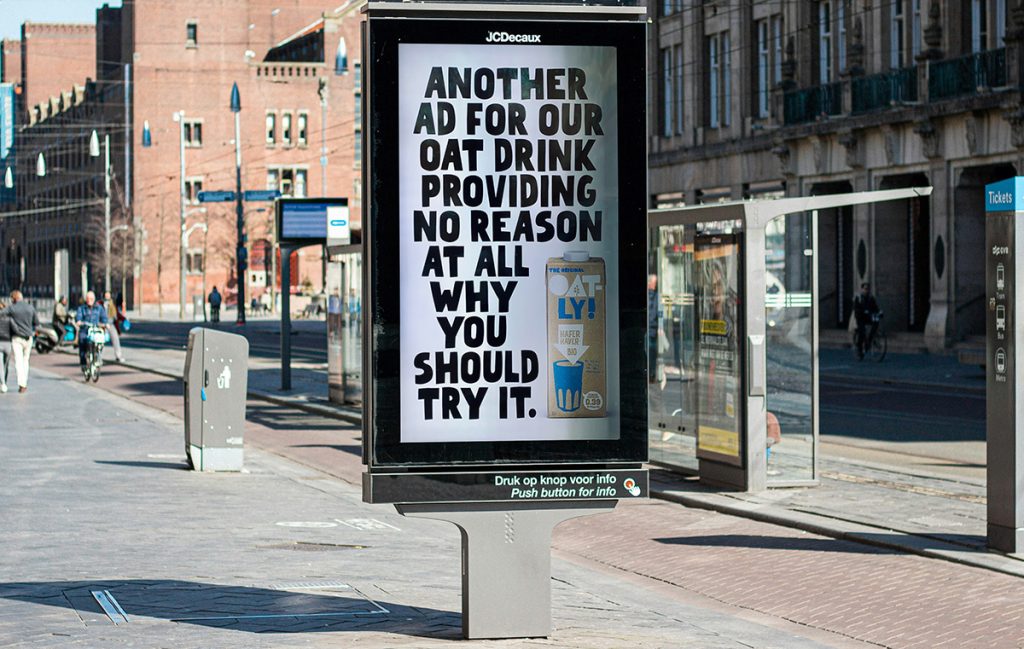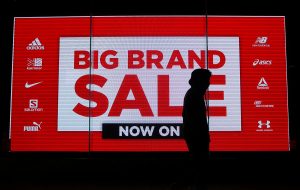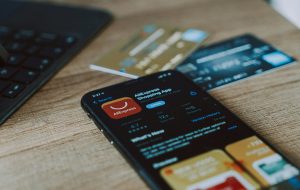Marketing Psychology: Influencing Consumer Behavior Through Emotional Triggers

Are you leveraging the power of consumer behavior in your marketing strategy? Understanding the intricate workings of the human mind can be the key to unlocking success in the competitive world of marketing. As businesses strive to connect with their target audience, marketing psychology emerges as a crucial tool for influencing consumer behavior and driving purchasing decisions.
In this blog post, we will explore the significance of understanding consumer behavior in the context of modern marketing. By delving into the realm of marketing psychology, we will uncover the underlying factors that drive consumer decision-making. From the impact of emotions and perceptions to the influence of social and cultural factors, we will unravel the complexities that shape consumer behavior in today’s market.
The Power of Emotions in Consumer Decision Making
When it comes to consumer behavior, emotions play a significant role in influencing purchasing decisions. Businesses often utilize emotional triggers to connect with their target audience on a deeper level and compel them to take action. Let’s delve into the impact of emotions in consumer decision making and how marketers leverage them to their advantage.
Emotional Triggers in Marketing
Fear
Fear is a powerful emotional trigger that marketers often employ to create a sense of urgency or necessity. For example, insurance companies use fear in their advertisements to emphasize the potential consequences of not being adequately covered. By highlighting the risks of being unprepared, they instill a sense of fear that motivates consumers to seek protection.
Nostalgia
Nostalgia is a potent emotional trigger that evokes sentimental feelings and fond memories. Many brands tap into nostalgia by reintroducing or reimagining older products or designs. By leveraging feelings of nostalgia, companies can establish a deep connection with consumers who associate positive emotions with their past experiences.
Humor
Humor is an effective emotional trigger that can create a memorable and enjoyable experience for consumers. Companies often use humor in their marketing campaigns to entertain and engage their audience, fostering a positive perception of their brand. By eliciting laughter and amusement, brands can leave a lasting impression and build a loyal customer base.
The Role of Storytelling in Eliciting Emotions
Creating Emotional Connections
Storytelling serves as a powerful tool for brands to connect with consumers on an emotional level. By crafting narratives that resonate with their audience’s values and aspirations, companies can foster a sense of empathy and understanding. Through compelling storytelling, brands can evoke emotions that lead to a deeper and more meaningful relationship with consumers.
Influencing Consumer Behavior
Effective storytelling can influence consumer behavior by shaping perceptions and influencing purchasing decisions. When brands share narratives that align with consumers’ experiences and emotions, they can inspire loyalty and drive engagement. By appealing to the emotional side of consumers, storytelling can effectively sway their preferences and choices.
Through understanding the psychological impact of emotions, marketers can strategically integrate emotional triggers and storytelling into their campaigns to shape consumer behavior and drive brand success. Embracing the power of emotions enables businesses to create compelling narratives that resonate with their target audience, ultimately forging lasting connections and driving meaningful consumer action.
Cognitive Biases and Consumer Decision Making
When consumers make purchasing decisions, they are often influenced by cognitive biases, which are systematic patterns of deviation from rationality in judgment. These biases impact consumer behavior, perception, and decision-making, ultimately affecting their purchasing habits.
Anchoring and Decoy Effect
The anchoring effect plays a significant role in shaping consumer perceptions of pricing. When presented with the first piece of information (the “anchor”), individuals tend to rely heavily on it when making subsequent judgments. Marketers utilize this bias by highlighting a higher original price before showing a discounted price, influencing consumers to perceive the latter as a great deal. Moreover, the decoy effect involves introducing a third, less attractive option to make one of the other options seem more appealing. By strategically positioning products with varying features and prices, marketers can prompt consumers to choose a specific option, steering their decision-making process.
Confirmation Bias in Brand Loyalty
Confirmation bias contributes to brand loyalty by leading consumers to favor information that confirms their preexisting beliefs or attitudes toward a particular brand. Once individuals have formed a favorable opinion about a brand, they tend to seek out and interpret information that validates their positive perceptions while disregarding contradictory details. Marketers capitalize on confirmation bias by reinforcing existing positive associations with their brand through targeted messaging and selective presentation of information, thereby strengthening consumer loyalty.
In understanding cognitive biases and their impact on consumer decision making, marketers can effectively tailor their strategies to engage with and influence their target audience, leveraging these inherent cognitive tendencies to drive consumer behavior and purchase decisions.
Social Proof and Influencer Marketing
In today’s digital age, social proof and influencer marketing play crucial roles in shaping consumer behavior and purchasing decisions. Let’s explore the different types of social proof and delve into the psychological principles that make influencer marketing such a powerful strategy.
Types of Social Proof
Testimonials: Testimonials from satisfied customers provide social proof by demonstrating that others have had positive experiences with a product or service. Consumers are more likely to trust a brand when they see real people endorsing it.
User-Generated Content: User-generated content, such as reviews, photos, and videos created by customers, serves as authentic social proof. It helps potential buyers visualize themselves using a product or service, thereby influencing their purchasing decisions.
Social Media Influencers: Influencers with a strong online presence and engaged followers have the ability to sway consumer behavior. Their recommendations and endorsements can significantly impact the choices of their followers, making influencer marketing a valuable tactic for brands.
Psychological Principles in Influencer Marketing
Likability: Influencers often leverage the principle of likability to establish a connection with their audience. By showcasing their personality, interests, and lifestyle, they become relatable figures, making their recommendations more persuasive.
Authority: Influencers who are perceived as experts in their respective niches hold authority over their audience. When such influencers endorse a product or service, their followers are inclined to trust their expertise and make purchase decisions based on their recommendations.
Social Validation: People tend to look to others for cues on how to behave, especially in ambiguous situations. Influencers, through their content and endorsements, provide social validation, assuring their audience that choosing a particular brand or product is socially acceptable and popular.
By understanding and applying these psychological principles, brands can orchestrate successful influencer marketing campaigns that resonate with their target audience, resulting in increased brand awareness, credibility, and ultimately, sales.
The Scarcity Principle and Consumer Urgency
As consumers, we often find ourselves drawn to products and services that appear limited or exclusive. Marketers harness this behavioral trait by leveraging the scarcity principle to create a sense of urgency and drive purchasing decisions.
Creating Perceived Scarcity in Marketing
Marketers employ various tactics to instill a sense of scarcity in consumers. Limited-time offers, exclusive deals, and product availability strategies are commonly used to create perceived scarcity. For instance, time-limited sales events, limited edition products, and exclusive access campaigns all capitalize on the fear of missing out (FOMO) to drive consumer action.
One notable example comes from the fashion industry, where luxury brands release limited numbers of a particular product, creating a high demand due to the restricted availability. Another effective strategy is the use of flash sales by e-commerce platforms, offering discounted prices for a short period, heightening the perceived scarcity of the deal.
Consumer Response to Scarcity
The scarcity principle often evokes a strong response from consumers. The fear of missing out (FOMO) can lead individuals to act quickly to secure a scarce item, driving impulse purchases. Additionally, limited availability can create a psychological impact, making consumers perceive the product as more valuable and desirable.
A case study conducted on a popular streaming service revealed that displaying a countdown timer for a limited-time offer significantly increased subscription sign-ups during the countdown period, demonstrating how scarcity can directly influence consumer behavior.
In conclusion, the scarcity principle is a powerful tool in marketing psychology, tapping into consumers’ innate desire for what is perceived as exclusive or unattainable. Marketers adept at leveraging scarcity effectively drive consumer urgency and foster a strategic advantage in the marketplace.
Takeaways
Understanding consumer behavior through the lens of marketing psychology is crucial for crafting effective marketing strategies. By recognizing the psychological triggers that drive consumer actions, businesses can tailor their approach to better resonate with their target audience. This deeper understanding allows for the creation of more compelling and relevant marketing campaigns, leading to improved consumer engagement and ultimately, business success. Applying these insights to your marketing strategies can foster stronger connections with consumers, paving the way for long-term brand loyalty and sustained growth. Embracing the principles of marketing psychology empowers businesses to not only meet but exceed the expectations of their audience, driving meaningful results in today’s competitive marketplace.










